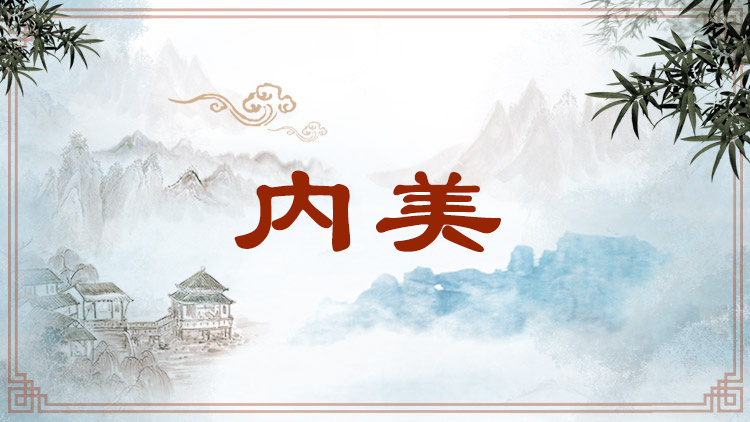Inner Beauty

内在的美好性情与品德。初见于屈原《离骚》,指先天禀赋的美德,由家族遗传及早期环境造就。与之相随的是“修能”,即初明事理后自觉自主地进行品德修养,并培养更多的才能。后来,用这一术语强调作者应该具有内在的美好性情与品德,高尚伟大的人格决定高尚伟大的文学。
Inner beauty means a fine disposition and moral character. It first appeared in Li Sao by Qu Yuan, referring to an inherited innate moral character which was further fostered in one's early living environment. On this basis acquired competence develops, which is achieved when one, after gaining initial understanding of the principles of things, consciously improves his moral character through self-cultivation, and strengthens one's abilities. Later this term is used to emphasize that an author should possess an inner fine disposition and moral character, and that noble and great literature can only derive from a noble and great character.
引例 Citations:
◎纷吾既有此内美兮,又重之以修能。(屈原《离骚》)
我天生拥有这么多美好的品德,又继续培养自己的卓越才能。
Armed with such moral qualities given me by birth, I continue to develop competence. (Qu Yuan: Li Sao)
◎文学之事,于此二者,不可缺一。然词乃抒情之作,故尤重内美。(王国维《人间词话删稿》)
文学创作这件事,要求内在品质和杰出才能两方面,缺一不可。而词是抒发性情的作品,所以尤其注重内美。
In literary creation, one must have both moral standard and outstanding capabilities. Neither is dispensable. As ci lyrics give expression to emotions, one must focus on bringing out the inner beauty. (Wang Guowei: Poetic Remarks in the Human World — An Edition with Deletions)
推荐:教育部 国家语委
供稿:北京外国语大学 外语教学与研究出版社
责任编辑:钱耐安





